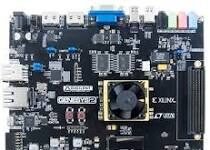RPA is the new buzz word in the field of automation technology. And, RPA using UiPath certification is becoming increasingly popular as more and more companies are adopting RPA technology and hiring RPA experts and developers. In this article, we will talk about the growing demand for RPA and related professionals, and the need to take an RPA certification course.
RPA or robotic process automation is one of the most trending sectors in the global technology market. A report by Grand View Research, Inc. shows that by 2027, the RPA market size will reach USD 10.7 billion, with a CAGR of 33.6% from 2020 to 2027. These numbers are a testimony to the remarkable popularity of RPA. Along with RPA’s positive growth trajectory, training courses, such as RPA using UiPath certification has seen a parallel rise in demand for obvious reasons. A certification course in RPA technology is vital for anyone wishing to start a career in RPA.
From healthcare to banking, RPA has impacted businesses and industries across several sectors, irrespective of their size. RPA employs software robots to replace time-consuming manual work. Fast, efficient, reliable, and error-free, RPA can accomplish most of the tasks that a manual employee would perform. Some of the major applications of RPA include processing insurance claims; managing records, documents, bookings, claims, invoices, human resources, and IT processes; and maintaining relationships with customers.
What is RPA?
The primary objective of RPA is to automate high-volume and repetitive business-oriented manual tasks with the help of software robots. Notably, these robots execute tasks by mimicking human interactions within a digital system. Just like humans, RPA robots use the digital user interface for capturing data and manipulating applications. These robots can log into apps; connect to system APIs; move files and folders; copy and paste data; extract and process content from PDFs, e-mails, and other forms; make calculations; read and write to databases, and scrape data from the web.
RPA comes with several advantages:
- Its non-intrusive nature does not disrupt crucial underlying systems.
- It allows automation at reduced costs with minimum upfront investment.
- It adjusts to changing business environments.
- You can expect faster benefits with full support from IT.
RPA vendors and tools are the software that executes automation processes. UiPath, Blue Prism, and Automation Anywhere are some of the popular RPA tools that are leading the market. Sectors that have adopted RPA technology include banking and financial services, healthcare, insurance, manufacturing, telecommunications, and energy.
Who is an RPA Developer?
UiPath offers training courses in RPA development through the RPA using UiPath certification program. But first, we must know who is an RPA developer and what are his/her roles and responsibilities. The job of RPA developers is to create, design, develop, and implement RPA systems. They are associated with the investigation, analysis, and setting up automated processes for efficiency maximization of business models. In many companies, an RPA developer alone fulfills the roles of automation architects, process designers, and production managers.
Using different RPA tools and technologies, such as UiPath, Blue Prism, Automation Anywhere, Work Fusion, OpenSpan, NICE, and UI Automation, an RPA developer’s first task is to analyze business pathways and processes. Based on this data and whether a process can be automated or structured, the developer goes on to design processes to automate. In a nutshell, an RPA developer has the following roles:
- Designing and development of test automation workflows
- Deploying RPA bots and development tools
- Supervising process design
- Assisting in implementing RPA solutions
- Undertaking quality assurance of the automation processes
- Creating a process documentation
What are the Skills Required?
Many accredited organizations offer industry-recognized RPA certifications, such as the RPA using UiPath certification program. The UiPath RPA training course is a significant head start if you want to grab a job as an RPA developer. Through this course, you can learn the basics of RPA and UiPath, including installation, structure, orientation, control-flow, debugging error handling, and automation of conventional processes and apps. Most of these courses are available online and offer hands-on training under expert guidance. The course prepares a candidate for theoretical skills and implementing those skills in real-world business processes.
Besides a certified training course, a candidate aspiring to be an RPA developer must possess specific essential skills that include:
- Expertise in using automation tools, such as Blue Prism and UiPath
- Command over C++, Java, or .NET and scripting languages (HTML, JavaScript, etc.)
- Knowledge of SQL or NoSQL
- Basic understanding of workflow, machine learning, and AI
- Sound analytical, logical, and problem-solving abilities
- A bachelor’s in computer science, mathematics, business administration, engineering or management information systems may be desirable but not necessary
Why is there a need to take an RPA certification course?
For many businesses, RPA has no doubt eased day-to-day tasks that typically demand a lot of time and energy. Naturally, a training course in RPA using UiPath certification is indispensable for anyone wishing to enter the field. There are several advantages of doing an RPA certification. You get a deeper understanding of RPA tools, and knowledge regarding enterprise automation workflow and automation debugging, as well as enhanced knowledge of the skills related to the working of artificial intelligence (AI) and associated concepts of RPA. Also, you learn about handling challenges related to robotic automation by employing strategic and tactical expertise.
Through practical training in various projects, the certification course prepares candidates to face real-world problems in the business sphere. Professional RPA experts are always on high demand by companies and organizations that take every possible step to avoid glitches in data management. Automation technology simplifies the complex task of data management. An RPA developer course equips candidates with the requisite skills for designing automation processes based on a company’s needs, resolving automation issues using RPA tools, configuring new automation with efficient tools, and developing and integrating RPA systems.
Time and energy are valuable resources, and RPA has proved to be a boon for companies who wish to replace tedious and defective manual work with technology. Leveraging the benefits of RPA has helped businesses to enhance productivity, accuracy, security, scalability, and customer services. There can be no better time to tap into the potential of this technological innovation to build a career in the field of robotic automation.











